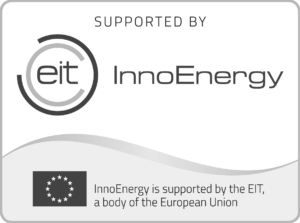28.05.2020
Triumf and Tartu University Hospital: How to plan innovation?
Connected Health Cluster members Triumf Health and Tartu University Hospital (TUH) can share their experience on how to plan research cooperation and put innovation into practice on that basis.
Cooperation between Triumf and TUH began at the end of November 2017. One of the goals of the project was to publish a research paper based on a study, but this has been postponed due to the emergency situation.
In addition to research, the project also aimed to improve the implementation process of new solutions at TUH. To do this, TUH’s current implementation process was mapped, opportunities and necessary steps for simplifying the process were discussed, research was done on the practices of other countries (e.g. online forms for introducing/implementing new solutions) and discussions were held on what would be the best form for TUH to implement innovation.
In the field of health tech, there are several potentially time-consuming processes that need to be taken into account in addition to the hospital itself, such as the process of registering a medicinal device if the solution calls for this. Based on Triumf’s case, we can say that research cooperation is a long-term process and comprises a number of steps, incl. preparing and validating study protocols, having medicinal experts validate the information used in the solution, development work, preparation of ethics committee permits, submissions, implementing amendments, reporting and publication of results.
How to simplify the process of innovation implementation in hospitals?
Finding a simple implementation survey on TUH’s website would make the process automatic and help reach the right person at various stages of the process. In addition, a survey would help tech providers without a direct line of contact to the hospital establish first contact. This would require TUH to have a designated person in place to handle the implementation of innovation and discuss further cooperation opportunities with providers after they pass the initial automatic assessment.
One way to speed up the process is to form an internal ethics committee, something often used in hospitals abroad. However, Estonian hospitals are small and forming an ethics committee in a hospital is likely not justified.
Main feedback
“This has been an educational project for Triumf Health,” says Triumf’s Chief Health Officer Kaari Kink to sum up the matter. “It became evident that we need to contribute much more time and resources to the cooperation than we initially planned. Even though advancing health tech in Estonia is certainly fascinating and has a lot of potential, it is hard for small health tech startups to achieve optimal results in this lengthy and resource-heavy process. At the same time, we are convinced that research and clinical cooperation are vital for the development of digital health. This gives us a reason to be optimistic about future cooperation and enthusiastic about contributing to the future of digital health in Estonia.”












